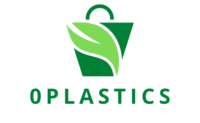Endangered Ecosystems: How Plastics are Choking Our Planet’s Vital Habitats
Plastic. It’s everywhere. From the bags we carry to the bottles we drink from, plastic has become an inescapable part of our daily lives. But while its convenience may be undeniable, its hidden cost to the environment is growing increasingly dire. Nowhere is this more evident than in our planet’s most delicate ecosystems, where plastic pollution is wreaking havoc on coral reefs, mangroves, and other vital habitats.
Coral Reefs: The vibrant underwater cities teeming with life face a multitude of threats, but plastic pollution ranks high among them. Large debris like discarded fishing gear can snag and damage delicate coral formations, while microplastics – tiny fragments less than 5 millimeters in size – are ingested by corals, disrupting their digestive systems and hindering their ability to thrive. This, in turn, throws off the delicate balance of the reef ecosystem, impacting the countless species that rely on it for food and shelter.
Mangroves: These coastal forests act as natural buffers against storms and erosion, while also providing nurseries for fish and filtering pollutants from the water. However, plastic pollution is clogging their roots, suffocating seedlings, and entangling wildlife. Microplastics are also finding their way into the food chain, posing a threat to the entire mangrove ecosystem.
Beyond the Obvious: The harm of plastic goes beyond the physical entanglement and ingestion. Tiny plastic particles often harbor harmful chemicals and pathogens, which can leach into the surrounding environment and be absorbed by organisms. This can lead to a range of health problems, from reproductive issues to cancer.
The consequences of plastic pollution extend far beyond the health of individual ecosystems. Coral reefs and mangroves provide vital ecosystem services that benefit billions of people around the world. They protect coastlines from storms, provide food security, and support tourism and recreation industries. The loss of these habitats would have devastating economic and social consequences.
What can we do?
The fight against plastic pollution requires a multi-pronged approach. Reducing our reliance on single-use plastics is key. Choosing reusable alternatives, properly disposing of plastic waste, and supporting policies that curb plastic production are all essential steps. Additionally, research and development into biodegradable and compostable plastics offer promising long-term solutions.
Protecting our planet’s vital ecosystems is not just an environmental imperative, it’s a matter of our own survival. By addressing the plastic pollution crisis, we can safeguard the health of our oceans, forests, and ultimately, ourselves.
Remember, every small action counts. Let’s choose a future where our oceans are free of plastic and our ecosystems can thrive.
